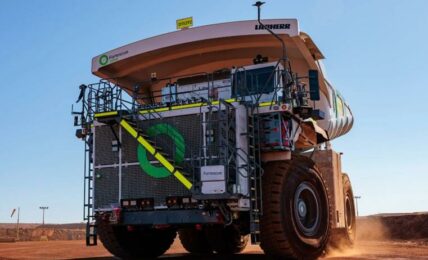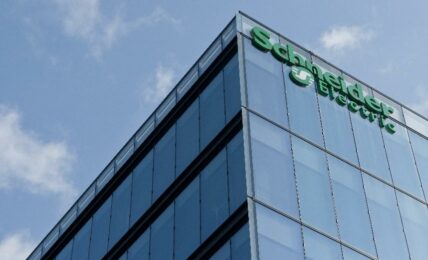Mercedes-Benz announced today a new goal to achieve an 80% reduction in CO2 emissions from production by 2030, on a 2018 basis.
The new ambition was unveiled as part of a series of ESG-related goals and initiatives announced by the company at its ESG Conference to investors and analysts today, encompassing areas including renewable energy, supply chain decarbonization, circular economy and human rights, among others.
The 80% emissions reduction goal follows the achievement by Mercedes-Benz in 2022 of its existing SBTi-approved target to reduce Scope 1 and 2 emissions by 50% by 2030. The company also noted that it has been carbon neutral at its fully-owned production sites worldwide since the beginning of 2022.
One of the key contributors to Mercedes-Benz production decarbonization progress is the switch to renewable energy, which currently accounts for 45% of overall energy used in production at Mercedes-Benz plants. The company said that it intends to increase renewable energy to account for 70% of overall energy needs at its own production sites by 2030, and aims to have all production plants globally running on 100% on renewable energy with zero CO2 emissions by 2039.
In 2021, the automaker announced plans to electrify its automotive fleet, including a goal to go all-electric by 2030, where market conditions allow. At the event today, Mercedes-Benz revealed that sales of battery-electric cars grew by 67% in 2022, and the company said that it expects EV sales to roughly double in 2023, and for EVs to reach up to 50% of sales by mid-decade.
In order to support a just transition, and recognizing that as electrification ramps, some job profiles, particularly in powertrain, will no longer exist, the company said that it will invest more than €1.3 billion in the qualification, training and continuing education of its employees by 2030.
In its value chain, Mercedes-Benz stated that it is pursuing a goal to achieve a green steel supply chain from 2039 at the latest, and the company highlighted initiatives it has taken towards reaching these targets, including an agreement to source fossil-free steel from global steel company SSAB, and an investment in green steel startup H2 Green Steel. The company also outlined plans to achieve a battery recycling rate of more than 96% shortly after it ramps up operations at a new recycling factory in Kuppenheim, Germany by the end of 2023, as well as initiatives to source and use sustainable materials to reduce the carbon footprint of batteries and cells.
On the human rights front, Mercedes-Benz said that it aims to complete the assessment process of 24 raw materials in its supply chain with elevated human rights risks by 2028, with an initial milestone goal of 70% for 2025.
Ola Källenius, Chief Executive Officer, Mercedes-Benz Group AG, said:
“At Mercedes-Benz, we want to build the world’s most desirable cars. And since there can be no luxury without sustainability, we have flipped the switch towards ESG – especially with our ramp-up of e-mobility. ESG enables long-term value creation. This includes mitigating risks and seizing opportunities in sustainable business. We intend to double down on both.”
The post Mercedes-Benz Pledges to Reduce Emissions from Production by 80% by 2030 appeared first on ESG Today.



